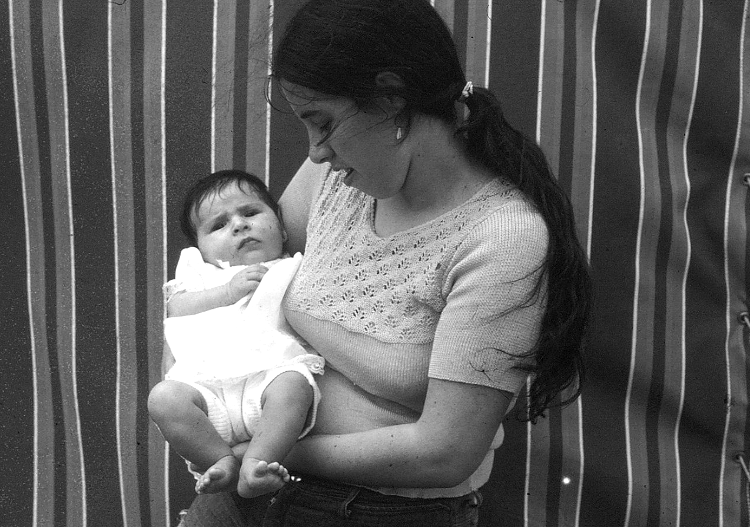
She’s balancing me on her hip, her bare feet sinking in the mud and her tiny denim shorts cutting across her dimpled thighs … She’s standing in front of a striped annex in a caravan park, somewhere in Far North Queensland.
What is this blur, whir of colour, this axe-grind-darkness? Nostalgia. Absence. This grief written along a curve, looping back and out, layered through time. Time is perhaps as Tomas Tranströmer offers not linear, but more a labyrinth, where you can press against the wall at the right spot to hear your past and future selves on the other side.
This thread of longing: how can it be finite?
Are we picking up the shattered pieces of our traumatised selves as we write? We know trauma, as Judith Herman observes, produces ‘profound and lasting changes in physiological arousal, emotion, cognition and memory.’ Traumatic events ‘shatter the construction of the self that is formed and sustained in relation to others’ and ‘cast the victim into a state of existential crisis.’
Are we mapping darkness?
In Negotiating with the Dead, Margaret Atwood says ‘writing has to do with darkness, and a desire to illuminate it, and to bring something back out to the light.’ She quotes Virginia Woolf: ‘Writing a novel is like walking through a dark room, holding a lantern which lights up what is already in the room anyway.’
Holding aloft a lamp, you cast your net.
She’s balancing me on her hip, her bare feet sinking in the mud and her tiny denim shorts cutting across her dimpled thighs. Her crochet lavender top rides up as she struggles to grip me, yowling to get away – at least that’s what I picture happening after the photo was snapped. She’s standing in front of a striped annex in a caravan park, somewhere in Far North Queensland. The Aussie tropical air: soupy. She is seventeen, yet she looks so much younger, too young to be dealing with anything as serious as being my mother. She looks utterly uncomfortable in her own skin, and I feel as though I’m voyeuristically looking through a window at her, right now. I am used to doing this. I grew accustomed to studying her from a distance over the years. She was always, it seems, housed in another building, even when we were in the same room.
SPECULATIVE adjective \ ˈspe-kyə-lə-tiv , -ˌlā- \
- involving, based on, or constituting intellectual speculation
- marked by questioning curiosity: A writer with a speculative mindAntonyms – actual, factual, real
When my sister rang I prattled on about the stupid Internet google dongle thing I couldn’t get working until I noticed her silence. When she spoke, her voice had the timbre of glass scraping the roots of teeth. My breath caught, waiting to hear, ‘I’ve got cancer.’ When the words, ‘Mum’s dying,’ spilled from her lips, I breathed. I did not tell her that only two days before I had confessed to a friend that Mum’s eventual death might be my blessing, a release from the pain of wanting what I could never have.









